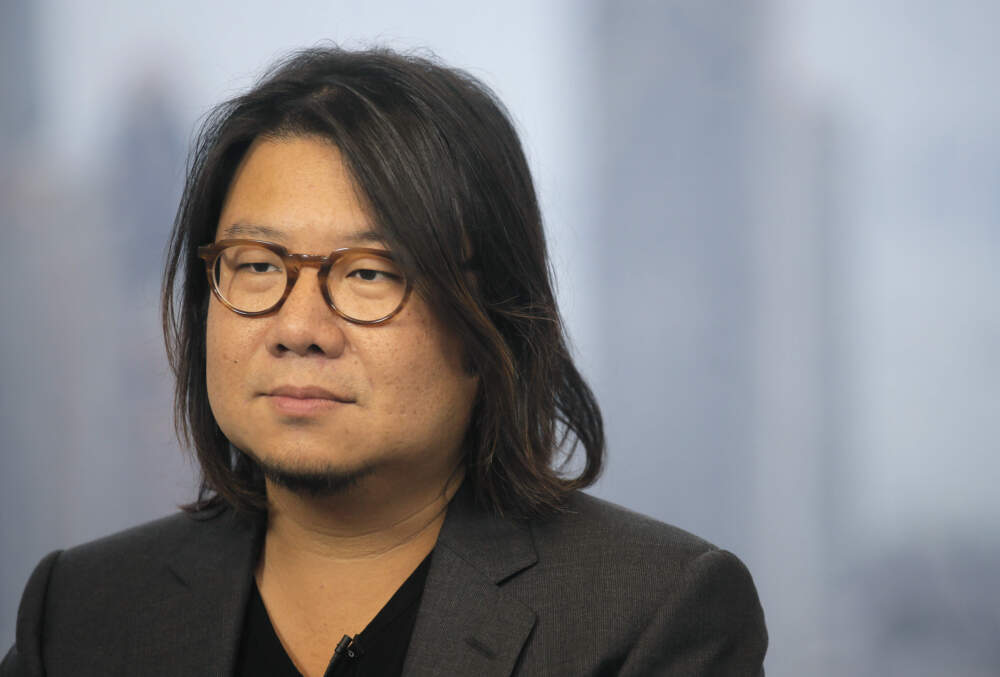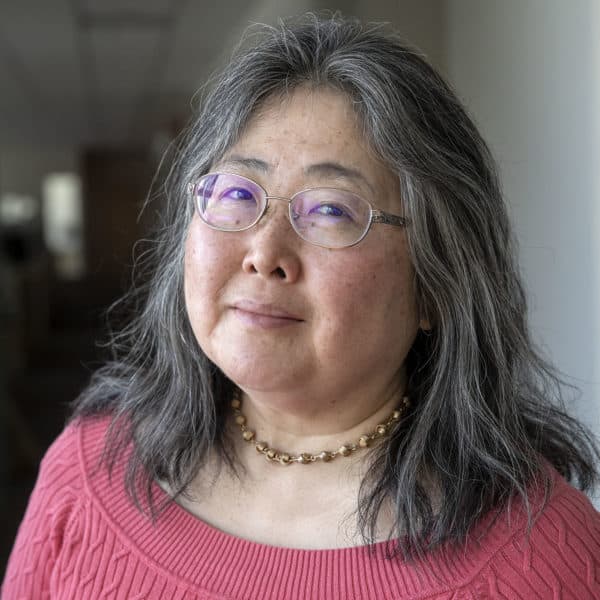Advertisement
Celebrating 10 years of 'Crazy Rich Asians' novel with author Kevin Kwan
Resume
Kevin Kwan didn’t set out to write a novel. “Crazy Rich Asians” started as a diversion.
“I was coming in Chicago from New York every week and spending a lot of time in hotel rooms and airport lounges," Kwan says. "I just started writing this fun little story that was a collection of memories and other stories I'd heard, and [I] just wanted to put something down on paper.”
The memories were of Kwan’s childhood in Singapore. It was the late 1970s and early 80s as the country was becoming a financial powerhouse. Though Kwan’s family wasn’t super-rich, they did move in those circles. Encounters with the wealthy left a big impression.
“I remember going to a friend's house and there was [an] enormous pond in the middle of the living room," he says. "They had baby sharks swimming in the pond. So, you know, for [an] eight or 9-year-old kid, you feel like you're in a James Bond villain's house.”
Kwan’s family left Singapore when he was 11. He grew up in the United States, but often returned to visit friends and family. He observed that they were becoming increasingly prosperous.
“Every time I would go visit Hong Kong, I would just notice all the various levels of upgrades that would happen," Kwan says. "First, you get picked up in a Toyota. A few years later, it's a Bentley. And then a few years later, they don't even come pick you up. They sent a van with the maids to come take your luggage. I was sort of fascinated by what was happening on this other side of the world. And no one else was talking about it. No one was writing about it. So I felt it was high time.”
So the book “Crazy Rich Asians” was born. And Kwan’s family wasn’t entirely happy with the result.
“They were very concerned about the title of the book and it being offensive," he says. "And I said, ‘You know, it's not meant to be offensive, but it is meant to be provocative.’ And I think without that title, it really would not have gotten the sort of notice and traction that it did.”
And “Crazy Rich Asians” got traction; the book and its two sequels have sold more than four million copies in the U.S. It’s also been translated into more than thirty languages.
The novel tells the story of Rachel, an economics professor living in New York City with her history professor boyfriend Nick. When Nick invites Rachel to his best friend’s wedding in Singapore, she accepts, not knowing his family is one of the richest in that country and that she would be viewed as an interloper. It’s a story that Kwan says resonated with a lot of readers:
“I would meet many Rachels who would fall in love with Asian men, Asian women, and they would discover that they came from these dynastic families of great wealth," he says. "How do you integrate yourself in that family? Or not? In many cases, a lot of relationships did not work out because of the cultural gulf and the wealth gap.”
Readers would get a chance to see that wealth gap between Rachel and Nick played out on screen five years after the book came out through the film adaptation of “Crazy Rich Asians.” But Kwan says the making of the film had a rocky start:
“Initially, one of the first people that were interested in buying the rights of the film said ‘This is a great story, but we gotta make the heroine white, otherwise it's not gonna work,'" Kwan says. "I said, 'Well, you gotta have to find someone else to do that with me because that's not happening.”
But eventually, Kwan got what he wanted. The film adaptation of “Crazy Rich Asians” had a majority Asian cast. It’s something that Hollywood had only done once or twice in the past 25 years. But the rarity of the event made the film subject to a lot of scrutiny; Casting decisions were put under the microscope. For instance, Henry Golding, who stars as Nick, is half-British half Malaysian, which raised a social media uproar.
Golding addressed it in an appearance on “The View” in 2018, saying “Being sort of half-British, there were sort of outcries of whitewashing, but I don't have hate for that. I think it's definitely a conversation that should be seen because it kind of just shows the studios that we're watching.”
Kwan says, “It was so scrutinized. We felt like we were under a Petri dish. But if you look at the big picture, what we were trying to do was portray something in an honest, sincere and sympathetic way. And I think once people saw the movie a lot was forgiven.”
Forgiven indeed. “Crazy Rich Asians” was the smash hit of the summer of 2018, grossing almost $240 million worldwide.
“I think Kevin Kwan definitely should be applauded and celebrated for raising visibility for Asians in the United States,” says Yunte Huang, a professor at the University of Southern California, Santa Barbara who writes about Asian American culture.
Huang celebrates Kwan’s accomplishment but says that the story glosses over the issue of class.
In the first scene of the film, which is adapted from the book, Nick’s mother Eleanor, played by Michelle Yeoh, attempts to check her wealthy family into a posh London hotel. But despite having a reservation, they are immediately turned away. The manager suggests the family “try Chinatown.” Eleanor deals with the snub with one phone call — her family buys the hotel.
As Huang points out, “Not everybody can afford to do that in order to fight racism.”
The success of the film was inspiring, and even life-changing for audiences. Actor Ke Huy Quan, a child star in films like “The Goonies” and “Indiana Jones and the Temple of Doom,” started losing acting opportunities as he got older. So Quan gave up acting.
Then along came “Crazy Rich Asians.”
“I remember watching it three times in the theater and I cried three times," Quan says. "I missed being up on the screen. I wanted to be up there with my fellow Asian actors. So it's really then that the idea of getting back into it started to take place”
And that idea resulted in Quan’s brilliant performance in the blockbuster hit “Everything Everywhere All At Once." It won him an Oscar for Best Supporting Actor last March.
"Crazy Rich Asians” ushered in a wave of other films with majority-Asian casts, including 2019’s “The Farewell" and 2020’s “Minari.” So, in a sense, Kwan helped open the door for Hollywood to broaden its depiction of Asians.
And despite his family’s initial objections to the title, the phrase “Crazy Rich Asians,” or CRA, has entered the cultural lexicon.
“I remember going to Hong Kong a few years after my book came out, and people were saying that [acronym] to me, and I didn't even know what they were referring to," Kwan says. "Someone would go, ‘Oh, he's a CRA’ and I'm like ‘a what?’ And they're like, ‘You know, a Crazy Rich Asian.'"
Kwan went on to tell the story of Asians outside of Asia. First, in the 2020 book "Sex and Vanity”. His next book, “Lies and Weddings,” drops next May. Both were built on the success of “Crazy Rich Asians."
And despite his multiple best-sellers, that success still catches Kwan by surprise.
“The word that keeps coming back to me is gratitude," he says. "I never imagined I could make a life telling stories and writing books... It was just beyond my wildest dreams.”
Happy tenth birthday “Crazy Rich Asians.”
This segment aired on November 7, 2023.
